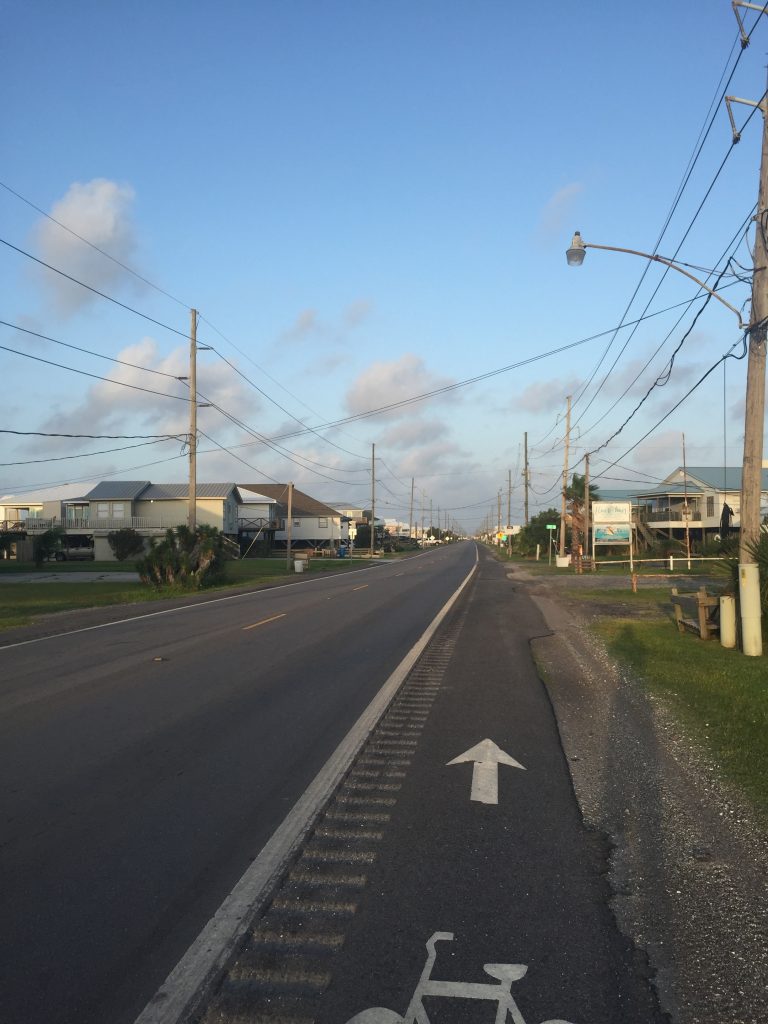 Plaintiff Richard Reynolds sustained injuries in a multi-vehicle accident on March 15, 2008, in St. Tammany Parish. Reynolds alleged, amongst other counts, that his insurer, Automobile Club Inter-Insurance Exchange (ACE) and Insurance Auto Auctions Corporation (IA) failed to preserve Reynolds’ vehicle for inspection purposes to determine whether any defects existed, despite being put on notice of the need for preservation. ACE and IA defended themselves by stating there was “no cause of action” for what Reynolds was attempting to sue for, and the Supreme Court of Louisiana granted certiorari, or an order to review the decision of the lower court, to definitively rule on the viability of negligent spoliation of evidence as a cause of action in Louisiana.
Plaintiff Richard Reynolds sustained injuries in a multi-vehicle accident on March 15, 2008, in St. Tammany Parish. Reynolds alleged, amongst other counts, that his insurer, Automobile Club Inter-Insurance Exchange (ACE) and Insurance Auto Auctions Corporation (IA) failed to preserve Reynolds’ vehicle for inspection purposes to determine whether any defects existed, despite being put on notice of the need for preservation. ACE and IA defended themselves by stating there was “no cause of action” for what Reynolds was attempting to sue for, and the Supreme Court of Louisiana granted certiorari, or an order to review the decision of the lower court, to definitively rule on the viability of negligent spoliation of evidence as a cause of action in Louisiana.
Reynolds claimed that both ACE and IA did not preserve Plaintiff’s car despite the fact that they knew of the lawsuit. Reynolds stated that the defendants knew a lawsuit was going to be filed and therefore had a duty to retain the vehicle in the condition in which they received it.
Negligent Spoliation of evidence, as argued by the Plaintiff, Richard Reynolds, is a claim for recovery due to defendants owing the plaintiff a duty to preserve, maintain, and to refrain from any alienation or destruction of Plaintiff’s vehicle for purposes of his litigation.
 Louisiana Personal Injury Lawyer Blog
Louisiana Personal Injury Lawyer Blog



 Karen and Joe LeBlanc brought a medical malpractice action against Dr. Rezaul Islam. A medical malpractice claim is a specific type of negligence claim in which the plaintiff alleges that a doctor or medical professional failed to act with the level of care they are duty-bound to provide, and that the plaintiff was harmed by the failure.
Karen and Joe LeBlanc brought a medical malpractice action against Dr. Rezaul Islam. A medical malpractice claim is a specific type of negligence claim in which the plaintiff alleges that a doctor or medical professional failed to act with the level of care they are duty-bound to provide, and that the plaintiff was harmed by the failure. Mental and physical disability is a trying issue for families that can cause incredible stress, especially when the person suffering from these infirmities is unwilling or unable to recognize their condition. Further, when the person is mentally unable to manage their health, personal, financial, and business affairs, legals steps must be taken to protect those interests and counsel from an excellent lawyer can mitigate some of the pain and stress such a situation can cause a family. The Foster family faced just such a situation when Mrs. Patricia Foster suffered a ruptured brain aneurysm during surgery and as a result of brain injury no longer was able to live independently, care for herself, or make sound personal and financial decisions. Her husband, Mr. Billy Joe Foster, thus sought a full interdiction so that he could make legal decisions on her behalf. The trial court took testimony from Mr. Foster’s doctors and her family members and ruled that full interdiction was warranted. Mrs. Foster appealed and the Louisiana First Circuit Court of Appeal upheld the full interdiction order.
Mental and physical disability is a trying issue for families that can cause incredible stress, especially when the person suffering from these infirmities is unwilling or unable to recognize their condition. Further, when the person is mentally unable to manage their health, personal, financial, and business affairs, legals steps must be taken to protect those interests and counsel from an excellent lawyer can mitigate some of the pain and stress such a situation can cause a family. The Foster family faced just such a situation when Mrs. Patricia Foster suffered a ruptured brain aneurysm during surgery and as a result of brain injury no longer was able to live independently, care for herself, or make sound personal and financial decisions. Her husband, Mr. Billy Joe Foster, thus sought a full interdiction so that he could make legal decisions on her behalf. The trial court took testimony from Mr. Foster’s doctors and her family members and ruled that full interdiction was warranted. Mrs. Foster appealed and the Louisiana First Circuit Court of Appeal upheld the full interdiction order. In Louisiana as in other U.S. states, the doctrine of res judicata – literally “a matter judged” – prevents parties from re-litigating a matter once it has been adjudicated on the merits by a competent tribunal. This prevents prolonged litigation of cases which have been purportedly concluded, thus avoiding an unnecessary waste of time and money. Although for res judicata to apply a judgment must be “final” and adjudged “on the merits,” a settlement agreement in Louisiana is res judicata between the parties and is accorded the same effect as a final judgment. (See Louisiana Workers’ Comp. Corp. v. Betz, 792 So.2d 763, 766 (La. Ct. App. 2001)). In other words, the signing of a settlement agreement can preclude parties from litigating matters specified as settled in the settlement. It goes without saying that parties should be cautious when signing settlement agreements. Illustrative is a case from the Louisiana First Circuit Court of Appeal.
In Louisiana as in other U.S. states, the doctrine of res judicata – literally “a matter judged” – prevents parties from re-litigating a matter once it has been adjudicated on the merits by a competent tribunal. This prevents prolonged litigation of cases which have been purportedly concluded, thus avoiding an unnecessary waste of time and money. Although for res judicata to apply a judgment must be “final” and adjudged “on the merits,” a settlement agreement in Louisiana is res judicata between the parties and is accorded the same effect as a final judgment. (See Louisiana Workers’ Comp. Corp. v. Betz, 792 So.2d 763, 766 (La. Ct. App. 2001)). In other words, the signing of a settlement agreement can preclude parties from litigating matters specified as settled in the settlement. It goes without saying that parties should be cautious when signing settlement agreements. Illustrative is a case from the Louisiana First Circuit Court of Appeal.
 In 2012, an independent contractor, Charles Kamrath, contracted with Creek Services, LLC to move one of their bulldozers. Kamrath had previously moved the same bulldozer with his trailer without any complications. On February 24th of 2012, Kamrath loaded the bulldozer to his trailer and commenced the transportation to Hammond, Louisiana. Unfortunately, the flatbed from the trailer detached and struck an oncoming car driven by Alice Lewis on Cullom Road in Springfield, Louisiana. The impact resulted in severe injuries to Lewis and she subsequently died shortly thereafter.
In 2012, an independent contractor, Charles Kamrath, contracted with Creek Services, LLC to move one of their bulldozers. Kamrath had previously moved the same bulldozer with his trailer without any complications. On February 24th of 2012, Kamrath loaded the bulldozer to his trailer and commenced the transportation to Hammond, Louisiana. Unfortunately, the flatbed from the trailer detached and struck an oncoming car driven by Alice Lewis on Cullom Road in Springfield, Louisiana. The impact resulted in severe injuries to Lewis and she subsequently died shortly thereafter. Throughout the last century asbestos was used in many products as an insulator from heat. Countless workers in the 1940s, 50s, 60s and beyond were exposed to asbestos fibers as part of their daily work. Those fibers can lie dormant for decades prior to forming mesothelioma cancer that then can metastasis throughout the body. Once mesothelioma is discovered typically a lawsuit follows in which every possible workplace in which the person was exposed is included as a defendant. However not all defendants will remain in the lawsuit until trial. Some will get out by filing motions in which they argue the facts do not support their inclusion in the proceedings. The following mesothelioma lawsuit out of Shreveport shows what happens when the facts of a case do not support the Plaintiff’s allegations as to certain parties fault.
Throughout the last century asbestos was used in many products as an insulator from heat. Countless workers in the 1940s, 50s, 60s and beyond were exposed to asbestos fibers as part of their daily work. Those fibers can lie dormant for decades prior to forming mesothelioma cancer that then can metastasis throughout the body. Once mesothelioma is discovered typically a lawsuit follows in which every possible workplace in which the person was exposed is included as a defendant. However not all defendants will remain in the lawsuit until trial. Some will get out by filing motions in which they argue the facts do not support their inclusion in the proceedings. The following mesothelioma lawsuit out of Shreveport shows what happens when the facts of a case do not support the Plaintiff’s allegations as to certain parties fault. In Louisiana the owners of motor vehicles are required by law to maintain a minimum amount of insurance in case of a collision. That’s the law and there is no getting around it. The rational behind it is simple, if you crash your car into someone else there needs to be at least a minimum amount that can be recovered by the other person. The consequences of not following that law is a bar from recovering the first $15,000 for your injuries and the first $25,000 of any property damage that you incur if you are in a wreck and it’s not your fault. Those penalties are harsh, but what happens if you fail to maintain insurance and you still have a note on your vehicle? Is the note holder left out in the cold for that first $25,000 to repair the car as well? The following case out of Baton Rouge Louisiana demonstrates what happens in those circumstances.
In Louisiana the owners of motor vehicles are required by law to maintain a minimum amount of insurance in case of a collision. That’s the law and there is no getting around it. The rational behind it is simple, if you crash your car into someone else there needs to be at least a minimum amount that can be recovered by the other person. The consequences of not following that law is a bar from recovering the first $15,000 for your injuries and the first $25,000 of any property damage that you incur if you are in a wreck and it’s not your fault. Those penalties are harsh, but what happens if you fail to maintain insurance and you still have a note on your vehicle? Is the note holder left out in the cold for that first $25,000 to repair the car as well? The following case out of Baton Rouge Louisiana demonstrates what happens in those circumstances. In the law, it is quite rare for a case to ever be considered simple. Though the issues may seem quite obvious and clear to a plaintiff, it is almost never a good idea to represent oneself “pro se”. This is partially because of the subtle procedural pitfalls which may decide the outcome of a case. In the vast majority of legal matters, it is a good idea to carefully select an experienced attorney to guide the plaintiff through the legal process. Unfortunately for a Pro Se Plaintiff in a case arising out of Calcasieu Parish the complexities of appellate procedures caused him to lose his rights to appeal.
In the law, it is quite rare for a case to ever be considered simple. Though the issues may seem quite obvious and clear to a plaintiff, it is almost never a good idea to represent oneself “pro se”. This is partially because of the subtle procedural pitfalls which may decide the outcome of a case. In the vast majority of legal matters, it is a good idea to carefully select an experienced attorney to guide the plaintiff through the legal process. Unfortunately for a Pro Se Plaintiff in a case arising out of Calcasieu Parish the complexities of appellate procedures caused him to lose his rights to appeal.